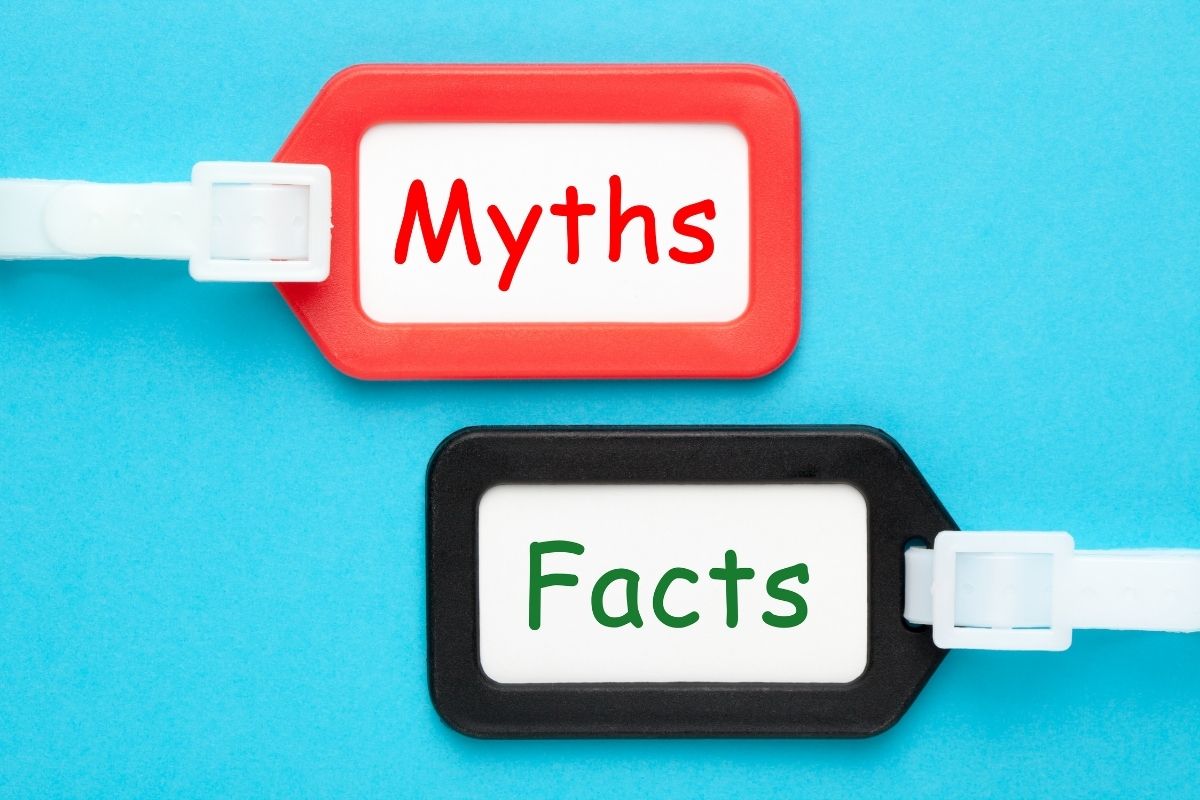Introduction
Gastric sleeve surgery, also known as sleeve gastrectomy, has gained popularity as an effective weight loss solution for individuals struggling with obesity. As with any medical procedure, there are myths and misconceptions surrounding gastric sleeve surgery. In this article, we will explore the most common myths and present the facts to provide a clearer understanding of this transformative procedure.
Understanding Gastric Sleeve Surgery
Before delving into the myths and facts, let’s briefly understand what gastric sleeve surgery entails. The procedure involves the removal of a large portion of the stomach, creating a smaller, banana-shaped stomach pouch. This reduction in stomach size limits the amount of food that can be consumed, leading to weight loss over time.
Myth 1: Gastric Sleeve is the Same as Gastric Bypass
While both procedures are aimed at weight loss, they are different. Gastric sleeve involves the removal of a portion of the stomach, while gastric bypass involves rerouting the digestive system.
Fact 1: Gastric Sleeve Reduces Stomach Size
In gastric sleeve surgery, the stomach is reduced to about 15% of its original size. This limits food intake and helps patients feel full faster, promoting weight loss.
Myth 2: Gastric Sleeve Surgery is Risky
Some believe that any surgery involving the stomach carries substantial risks.
Fact 2: Gastric Sleeve Surgery is Safe and Effective
Gastric sleeve surgery is considered safe and has a lower risk of complications compared to other weight loss surgeries.
Myth 3: Gastric Sleeve Surgery is a Quick Fix for Weight Loss
There is a misconception that the surgery alone guarantees rapid and effortless weight loss.
Fact 3: Gastric Sleeve Requires Commitment to Lifestyle Changes
While the surgery jumpstarts weight loss, adopting a healthy lifestyle, including a balanced diet and regular exercise, is crucial for long-term success.
Myth 4: Gastric Sleeve Surgery is Only for Severely Obese Individuals
There’s a belief that gastric sleeve surgery is reserved for those with extreme obesity.
Fact 4: Gastric Sleeve Can Benefit Moderately Obese Individuals
Gastric sleeve surgery can be suitable for individuals with a body mass index (BMI) as low as 30, not just those with severe obesity.
Myth 5: Gastric Sleeve Results in Malnutrition
There is a concern that the reduced stomach size leads to malnutrition due to inadequate nutrient absorption.
Fact 5: Proper Nutrition is Emphasized After Gastric Sleeve Surgery
Patients are advised on proper nutrition and may require vitamin supplements to prevent nutritional deficiencies.
Myth 6: Gastric Sleeve Surgery is Painful and Invasive
The fear of undergoing an invasive and painful procedure discourages some from considering gastric sleeve surgery.
Fact 6: Gastric Sleeve is Minimally Invasive and Less Painful
Gastric sleeve surgery is performed laparoscopically, leading to smaller incisions, less pain, and quicker recovery times.
Myth 7: Gastric Sleeve is Reversible
There is a misconception that gastric sleeve surgery can be reversed if the patient changes their mind.
Fact 7: Gastric Sleeve is a Permanent Procedure
The surgery permanently reduces the size of the stomach and cannot be reversed.
Myth 8: Gastric Sleeve Surgery is Covered by Insurance
Many believe that insurance companies universally cover gastric sleeve surgery.
Fact 8: Insurance Coverage for Gastric Sleeve Varies
Insurance coverage for gastric sleeve surgery depends on the policy and the patient’s specific circumstances.
Myth 9: Gastric Sleeve Surgery Leads to Hair Loss
Some associate hair loss with gastric sleeve surgery.
Fact 9: Hair Loss After Surgery is Temporary
Hair loss may occur due to nutritional changes after surgery, but it is usually temporary and reversible.
Myth 10: Gastric Sleeve is the Last Resort for Weight Loss
Gastric sleeve surgery is sometimes considered a last resort for those who have failed to lose weight through other methods.
Fact 10: Gastric Sleeve can be Considered Earlier in Weight Loss Journey
Gastric sleeve surgery can be an option for individuals struggling with obesity, even if they haven’t tried other weight loss methods.
Myth 11: Gastric Sleeve is for Anyone Who Wants to Lose Weight
There is a misconception that anyone desiring weight loss can undergo gastric sleeve surgery.
Fact 11: Candidates for Gastric Sleeve are Evaluated Thoroughly
Candidates for surgery undergo comprehensive evaluations to determine if they meet the necessary criteria.
Myth 12: Gastric Sleeve Surgery is Purely Cosmetic
Some view gastric sleeve surgery as a purely cosmetic procedure.
Fact 12: Gastric Sleeve Surgery Has Health Benefits Beyond Aesthetics
While the surgery can improve appearance, its primary purpose is to improve health and well-being.
Myth 13: Gastric Sleeve is the Easiest Weight Loss Surgery Option
There is a misconception that gastric sleeve surgery requires minimal effort for weight loss.
Fact 13: Gastric Sleeve Requires Dedication and Effort
Successful outcomes require dedication to lifestyle changes and a commitment to follow medical advice.
Myth 14: Gastric Sleeve is Not Effective in the Long Term
Some doubt the long-term effectiveness of gastric sleeve surgery.
Fact 14: Gastric Sleeve Provides Long-Term Weight Loss
Research shows that gastric sleeve surgery can result in sustained weight loss over many years.
Myth 15: Gastric Sleeve Eliminates the Need for Diet and Exercise
There is a belief that after surgery, diet and exercise are no longer necessary for weight maintenance.
Fact 15: Diet and Exercise are Essential After Bariatric Surgery
A healthy lifestyle, including diet and exercise, remains crucial for maintaining weight loss and overall well-being.
Conclusion
Bariatric surgery is a proven and effective weight loss procedure that can positively impact the lives of those struggling with obesity. While there are myths surrounding this surgery, understanding the facts can help individuals make informed decisions. It is essential to recognize that gastric sleeve surgery is a tool to support weight loss, and long-term success requires dedication to lifestyle changes.
FAQs
- How much weight can I expect to lose after gastric sleeve surgery? Weight loss varies from person to person, but patients can typically lose 60% to 70% of their excess weight within the first year after surgery.
- Are there any potential complications associated with gastric sleeve surgery? As with any surgery, there are potential risks, but gastric sleeve surgery is considered safe, and serious complications are rare.
- Will I need to follow a strict diet after gastric sleeve surgery? Yes, following a balanced and healthy diet is essential for successful weight loss and overall health after the surgery.
- Can bariatric surgery help with obesity-related health conditions? Yes, bariatric surgery can improve or resolve obesity-related health issues, such as type 2 diabetes and hypertension.
- How long does it take to recover from bariatric surgery? Most patients can return to light activities within a few days and resume regular activities within a few weeks. Full recovery may take up to six weeks.
🌟 Got Questions? Reach Out to Us!
We’re here to answer your questions and assist you in any way we can! If you couldn’t find the information you’re looking for on our website or if you need help with a specific matter, please don’t hesitate to get in touch.
👉 Contact Us, and we’ll get back to you as soon as possible. Your inquiries matter to us!
🌐 SoracaMed – A World Filled with Health and Information!
If you are considering treatment, you can reach our expert team via WhatsApp. Contact Us to connect with us for Gastric Sleeve Surgery.




